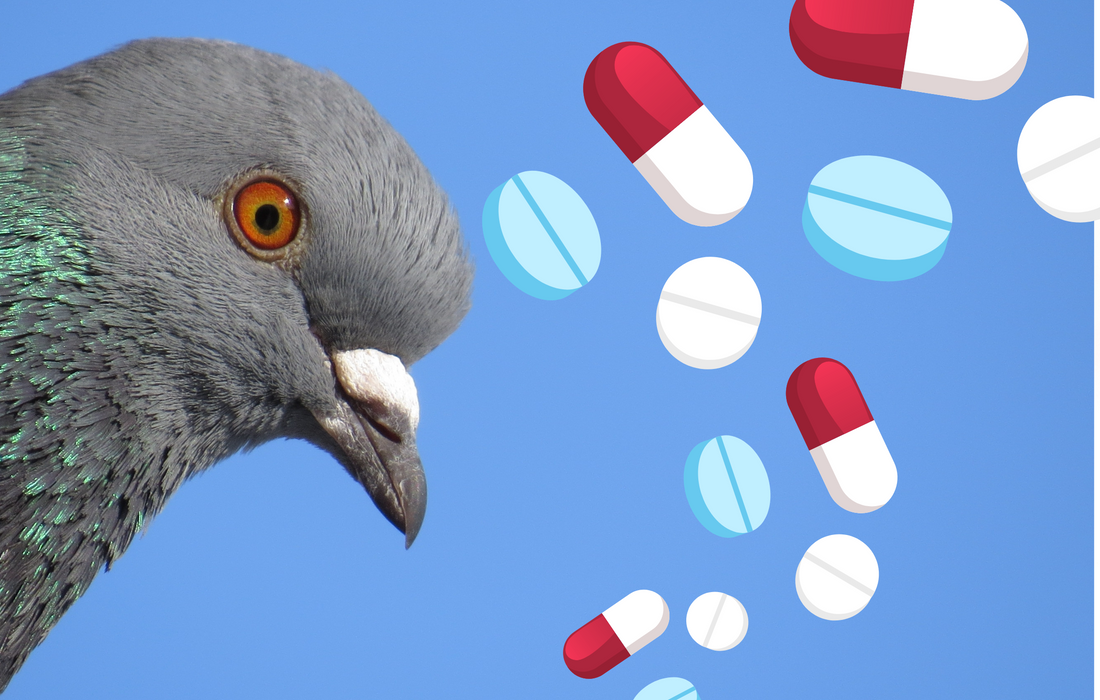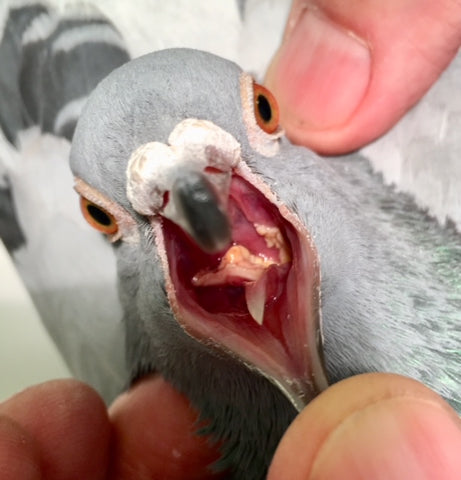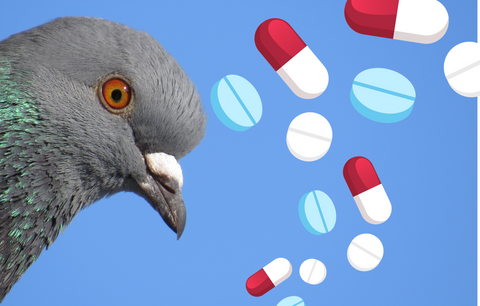
Identifying and Addressing Canker in Pigeons
Share
Pigeons, often admired for their beauty and symbolism, are susceptible to various health issues, and one of them is canker, scientifically known as Trichomoniasis. Canker is a protozoan infection that can affect pigeons' overall well-being if left untreated. In this guide, we will explore what canker is, how to identify its symptoms, and steps to manage and prevent it to ensure your feathered friends lead a healthy life.
Understanding Canker (Trichomoniasis)
Canker is caused by a protozoan parasite called Trichomonas gallinae. Pigeons can contract this infection by ingesting contaminated food, water, or through direct contact with infected birds. The parasite primarily targets the mucous membranes of the throat and mouth, leading to various health issues.

Identifying Canker Symptoms
- Difficulty Swallowing: Infected pigeons might show difficulty in swallowing, often regurgitating food or water.
- Visible Lesions: Yellowish or white cheesy lesions can develop in the mouth, throat, and sometimes crop.
- Weight Loss: Due to difficulty in eating, infected pigeons might experience weight loss and general weakness.
- Excessive Salivation: Pigeons with canker may drool excessively, showing signs of wetness around their beaks.
- Sluggish Behavior: Infected pigeons might become less active, spending more time perched and showing reduced interest in their surroundings.
- Change in Droppings: Watch for changes in the color and consistency of their droppings, as canker can affect the digestive system.
- Foul Odor: An unusual foul odor around the beak can also be an indication of canker.
Managing and Preventing Canker
- Isolation and Quarantine: If you suspect a pigeon in your flock has canker, isolate the bird to prevent the infection from spreading. Quarantine new birds before introducing them to your existing flock to avoid introducing infections.
- Consult a Veterinarian: A veterinarian experienced in avian health should examine the infected pigeon. They can prescribe appropriate medication and offer guidance on treatment.
- Medication: Medications like metronidazole or ronidazole are commonly used to treat canker. Always follow the veterinarian's instructions for dosage and duration.
- Hygiene and Cleanliness: Regularly clean and disinfect food and water containers. Ensure proper hygiene in the loft or coop to prevent the buildup of contaminated materials.
- Nutrition: Provide a balanced and nutritious diet to boost the pigeons' immune system. Well-nourished birds are more equipped to fight off infections.
- Prevent Overcrowding: Overcrowding can stress birds and increase the risk of disease transmission. Provide adequate space for your pigeons.
- Water Source: Ensure a clean and uncontaminated water source. Avoid allowing pigeons to drink from stagnant water.
- Regular Health Checks: Schedule routine health checks for your pigeons to catch any potential infections early on.

Conclusion
Canker can pose a significant threat to the health and well-being of pigeons, but with vigilance, proper care, and early intervention, it can be effectively managed and even prevented. By recognizing the symptoms and implementing the necessary measures, you can ensure that your beloved pigeons thrive in a safe and healthy environment. Remember, seeking professional guidance from a veterinarian is crucial for accurate diagnosis and effective treatment. Your commitment to the well-being of your pigeons will undoubtedly lead to a happier and healthier flock.

